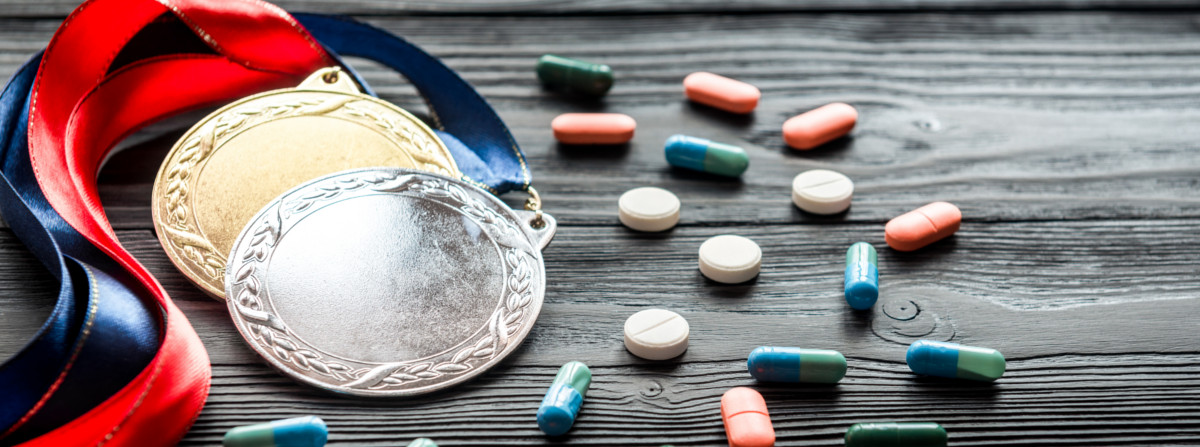

Should Performance-Enhancing Drugs Be Accepted in Sports?
The question of whether performance-enhancing drugs (PEDs) should be accepted in sports is a complex and controversial one. While some argue that PEDs can provide athletes with a competitive edge and enhance the overall quality of the sport, there are significant ethical, health, and fairness concerns that make accepting their use problematic.
1. Ethical concerns: Accepting PEDs in sports raises ethical questions about the integrity of the competition. Sports are meant to showcase the natural abilities and skills of athletes, and allowing PEDs can undermine this principle. It creates an uneven playing field where success is no longer solely determined by talent, hard work, and dedication, but also by the use of substances.
2. Health risks: Many PEDs have serious health consequences, both short-term and long-term. Athletes who use these drugs are exposed to various risks such as liver damage, cardiovascular issues, hormonal imbalances, and psychological side effects. Accepting PEDs would put athletes' health at risk, potentially leading to long-term health problems and even premature death.
3. Fairness: Accepting PEDs would create an unfair advantage for athletes who use them. Not all athletes have equal access to these substances, and some may not be willing to compromise their health by using them. This would lead to an uneven playing field, where athletes who choose not to use PEDs would be at a disadvantage against those who do.
4. Impact on the spirit of sports: Sports are not just about winning; they also promote values like discipline, fair play, and respect. Accepting PEDs would undermine these values, as it sends the message that success can be achieved through artificial means rather than through hard work and dedication. It could also discourage young athletes from pursuing sports if they feel they cannot compete without using PEDs.
5. Legal and regulatory challenges: Accepting PEDs would pose significant legal and regulatory challenges. Currently, most sports organizations and anti-doping agencies have strict rules and testing protocols in place to detect and punish athletes who use PEDs. Changing these rules would require extensive legal and regulatory changes, which may be difficult to implement and enforce consistently.
While there are arguments in favor of accepting PEDs, such as the potential for enhanced performance and increased entertainment value, the ethical, health, fairness, and legal concerns outweigh these potential benefits. The current anti-doping regulations aim to ensure a level playing field and protect the health and integrity of sports. It is essential to maintain these regulations and invest in education and prevention programs to promote clean and fair competition.
References:
1. Waddington, I., Malcolm, D., & Smith, A. (2004). Drugs in sport: the pressure to perform. Routledge.
2. Yesalis, C. E., & Bahrke, M. S. (2002). Doping among adolescent athletes. Baillière's Best Practice & Research Clinical Endocrinology & Metabolism, 16(3), 481-495.
3. World Anti-Doping Agency. (2021). The World Anti-Doping Code. Retrieved from https://www.wada-ama.org/en/resources/the-code
Related Posts
© 2025 Invastor. All Rights Reserved


User Comments
Princess Mae Turner
a year ago
Hard to say. On the one hand, I don't think that it's sportsmanlike to enhance your performance illegally, if it's not tolerated. I think that people who "cheat" to maximize their performance aren't being very sportsmanlike. But on the other hand... If everyone seems to be on one enhancement regimen or another, then what's the point of making something illegal? Is it arbitrary to ban some substances and regimens while allowing others? I would normally think that the true victims of enhancement culture are the players who don't want to engage for personal or health reasons, because they might not be able to operate at the same level. I think that the pressure to perform sports miracles and "wow the crowd" with spectacular feats of athleticism and endurance inevitably creates an enhancement culture, whether it's condoned or not. If you're always escalating the physical demands to be bigger/stronger/faster/more endurance, then you're demanding someone to perform to their own physical detriment. Linebackers will gain too much weight and have cardiovascular issues. Players will play with injuries that risk long-term effects. People wear out their bodies, they hurt their brains. You can't really incentivize "win at all costs" behavior in performance and training for players, and not expect that it'll have a negative effect on sportsmanlike conduct. However, I think the team franchises should regulate each other. I think it's bullshit that Congress wastes our tax dollars on these steroid investigations and hearings.
Sanchez Mitchell
a year ago
I have two takes on this kind of thing really. It's terrible that someone like Lance Armstrong had to use drugs to really win the Tour De France, but at the same time, even without drugs, he'd probably place well and could literally destroy us. Without knowing about the drug side of things, kids see these athletes as inspirational people. I think we should try limiting drug use, but don't make a big deal about it in the public.
Nelson Campbell
a year ago
I think people have the right to enhance their bodies (if using drugs does the trick, so be it) in order to achieve their maximum potential in any given sport. There was a certain documentary about steroids i watched some time ago, Bigger Stronger Faster, and i can say it did create on me a more fair perception of those men and women that resort to steroid use in order to achieve certain sporting goals. I concede that it's unfair and against the laws of any game to use these resources to enhance your productivity in a covert way. But if sports start to allow people to use whatever means necessary to achieve the highest possible performance, then so be it, isn't that the spirit of competition?
Adams Baker
a year ago
I think the general opinion on this is negative. If you use drugs to compete unfairly, you're not an athlete. You're a cheat who's trying way too hard to win.
Young Wright
a year ago
Winners don't take drugs. Well they do but they later get disqualified.
Lara Randall
a year ago
It defeats the purpose of all athletic endeavors if the athletes can use performance enhancing drugs.
Sweeney Wyatt
a year ago
I think we should have a separate Olympics for people that use PED so we can see the extent of science and athleticism humankind can come up with.
Johns Friedman
a year ago
Certain things like HGH should be allowed under supervision. As fans we can't expect athletes to put their bodies on the line and then come back from injury as fast as possible without any help. HGH has shown to be completely healthy if it's administered by a professional. Also, certain athletes like 100m sprinters and football players are definitely taking myriads of things. It's almost a requirement at this point.
Keith Hutchinson
a year ago
There should be a Performance Enhancing Drug Olympics, separate from the proper one where you are allowed use any drugs, it would make for such good TV
Davis Wiley
a year ago
The argument against them is pretty much just that if they're allowed it's really easy for them to be more or less required for everyone to take in order to remain competitive. I don't really have a strong opinion and I understand that knowing where to draw the line is nearly impossible but it seems kinda shitty for someone to be required to take whatever performance enhancing substance in order to compete.